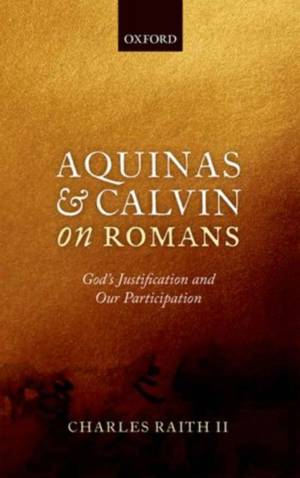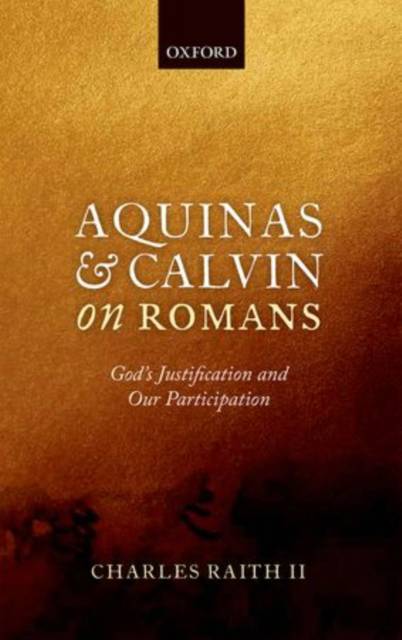
Bedankt voor het vertrouwen het afgelopen jaar! Om jou te bedanken bieden we GRATIS verzending (in België) aan op alles gedurende de hele maand januari.
- Afhalen na 1 uur in een winkel met voorraad
- In januari gratis thuislevering in België
- Ruim aanbod met 7 miljoen producten
Bedankt voor het vertrouwen het afgelopen jaar! Om jou te bedanken bieden we GRATIS verzending (in België) aan op alles gedurende de hele maand januari.
- Afhalen na 1 uur in een winkel met voorraad
- In januari gratis thuislevering in België
- Ruim aanbod met 7 miljoen producten
Zoeken
Aquinas and Calvin on Romans
God's Justification and Our Participation
Charles Raith
Hardcover | Engels
€ 217,95
+ 435 punten
Omschrijving
Aquinas and Calvin on Romans is a comparative study of John Calvin's and Thomas Aquinas's commentaries on the first eight chapters of Paul's letter to the Romans. Focusing on the role of human participation in God's work of salvation, Charles Raith argues that Calvin's critiques of the "schoolmen" arising from his reading of Romans fail to find a target in Aquinas's theology while Calvin's principal positive affirmations are embraced by Aquinas as well. Aquinas upholds many fundamental insights that Calvin would later also obtain in his reading of Romans, such as justification sola fide non merito (by faith alone and not by merit), the centrality of Christ for salvation, the ongoing imperfection of the sanctified life, the work of the Spirit guiding the believer along the path of sanctification, and the assurance of salvation that one obtains through the indwelling of the Spirit, to name only a few. Even more, numerous identical interpretations arising in their commentaries makes
it necessary to consider Calvin's reading of Romans as appropriating a tradition of interpretation that includes Aquinas. At the same time, the nonparticipatory dimensions of Calvin's reading of Romans becomes clear when set beside Aquinas's reading, and these nonparticipatory dimensions create difficulties for Calvin's interpretation, especially on Romans 8, that are not present in Aquinas's account. Raith therefore suggests how Calvin's reading of Romans, especially as it pertains to justification and merit, should be augmented by the participatory framework reflected in Aquinas's interpretation. The book concludes by revisiting Calvin's criticisms of the Council of Trent in light of these suggestions.
it necessary to consider Calvin's reading of Romans as appropriating a tradition of interpretation that includes Aquinas. At the same time, the nonparticipatory dimensions of Calvin's reading of Romans becomes clear when set beside Aquinas's reading, and these nonparticipatory dimensions create difficulties for Calvin's interpretation, especially on Romans 8, that are not present in Aquinas's account. Raith therefore suggests how Calvin's reading of Romans, especially as it pertains to justification and merit, should be augmented by the participatory framework reflected in Aquinas's interpretation. The book concludes by revisiting Calvin's criticisms of the Council of Trent in light of these suggestions.
Specificaties
Betrokkenen
- Auteur(s):
- Uitgeverij:
Inhoud
- Aantal bladzijden:
- 244
- Taal:
- Engels
Eigenschappen
- Productcode (EAN):
- 9780198708254
- Verschijningsdatum:
- 8/07/2014
- Uitvoering:
- Hardcover
- Formaat:
- Genaaid
- Afmetingen:
- 135 mm x 218 mm
- Gewicht:
- 408 g

Alleen bij Standaard Boekhandel
+ 435 punten op je klantenkaart van Standaard Boekhandel
Beoordelingen
We publiceren alleen reviews die voldoen aan de voorwaarden voor reviews. Bekijk onze voorwaarden voor reviews.









